Xbox One vs PlayStation 4 smackdown: battle of the consoles
We stack up the Microsoft Xbox One and Sony PS4. Let battle commence...
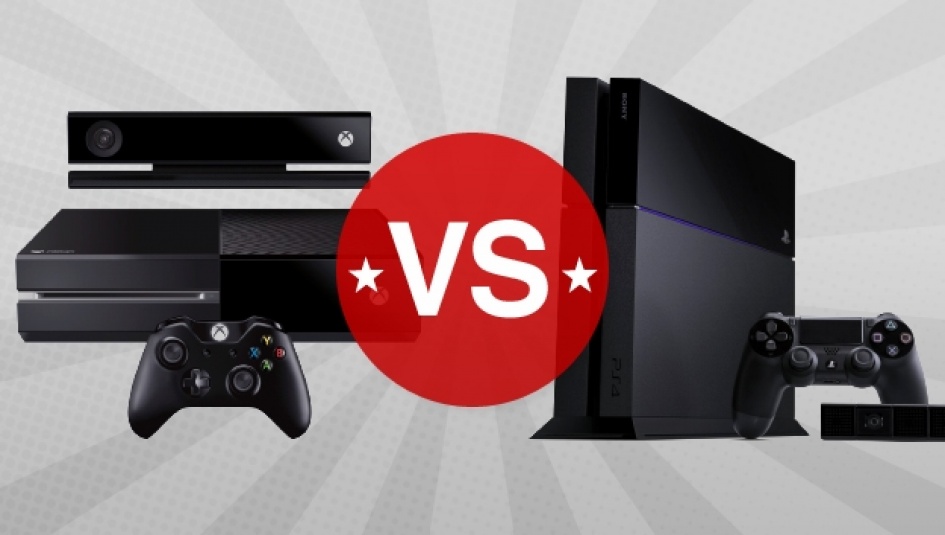
Get all the latest news, reviews, deals and buying guides on gorgeous tech, home and active products from the T3 experts
You are now subscribed
Your newsletter sign-up was successful
Trying to decide which next gen console to buy? Is choosing between the PS4 vs Xbox One making your head hurt? Which console is best? In these tough gaming times you need a friend to guide you to buying the right console for you, and we're that helping hand. We've pitched the new Xbox up against the latest PlayStation in the ultimate buyer's guide.
With both Sony and Microsoft's latest consoles getting on for two years old now they're really starting to hit their stride. That became obvious at this year's E3 show, the biggest event in the console gaming calendar.
Both companies brought their A games and delivered show-stopping events, but also took slightly different approaches too.
And now with the big end-of-year showdown looming we'll be seeing Microsoft and Sony going head-to-head in the run up to Christmas.
So this is an ideal time to take a look at who's winning the battles, and who might win the war.
Xbox One vs. PlayStation 4: Price
Sony PlayStation 4
With a lower launch price than the Xbox One and fewer marketing faux pas - do you really want to have to buy a Kinect? - the PlayStation 4 has garnered a big lead in the adoption race. At £350 it was almost £100 cheaper than the Xbox One.
Get all the latest news, reviews, deals and buying guides on gorgeous tech, home and active products from the T3 experts
As a result it hasn't seen too many price drops of its own as Sony simply hasn't felt the need to.
That doesn't mean you can't pick up some bargains though and, like the competing console, you can find the 500GB version for well under £300 these days.
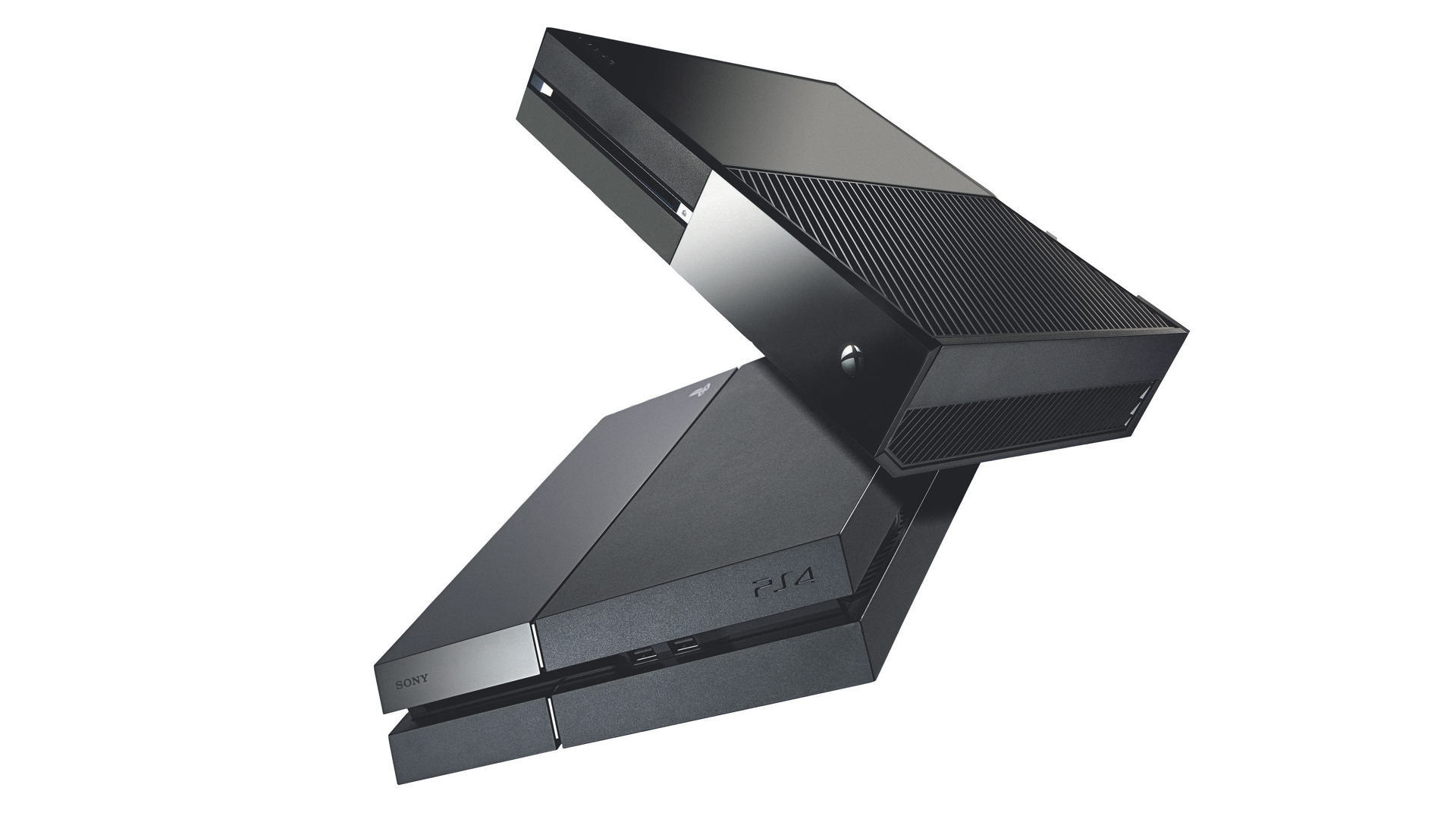
Microsoft Xbox One
At launch there was a rather large disparity between the cost of the two machines, with the Xbox One going on sale for a costly £430. Today though you can pick up an Xbox One with a 500GB hard drive bundle for less than £300, sometimes a lot less.
The price drops have been coming at regular intervals as Microsoft has tried to boost sales, but with almost parity between the two machines now don't expect too much more cost-cutting.
The Xbox One has seen some pretty significant price cuts, now you can pick one up for as little as £270. Now there is almost complete price parity with the PlayStation 4 it's now just about the games and the features, not the cost.
Xbox One vs. PlayStation 4: Games
Sony PlayStation 4
Much of last year's noise from Sony was about being 'for the gamers', positioning its PS4 as the console choice for the dedicated gamer.
But this generation is looking different to the previous ones in that there really aren't that many first-party exclusive titles for the respective machines. Most of the big kickers are cross-platform, such as the ubiquitous Call of Duty franchise. Sony itself even confirming that with the delay to Uncharted 4: A Thief's End it's exclusive output is looking rather sparse.
That's not to say there aren't still some fantastic titles out there for the PS4. Why not also check out our extensive list of the best PS5 games, too.
What Sony has done though is look to the old school to produce the excitement. We've already had the remastered edition of Sony-exclusive, The Last of Us, and it's filling the Uncharted void with the Nathan Drake Collection, bringing the full trilogy-so-far to the latest hardware in remastered form.
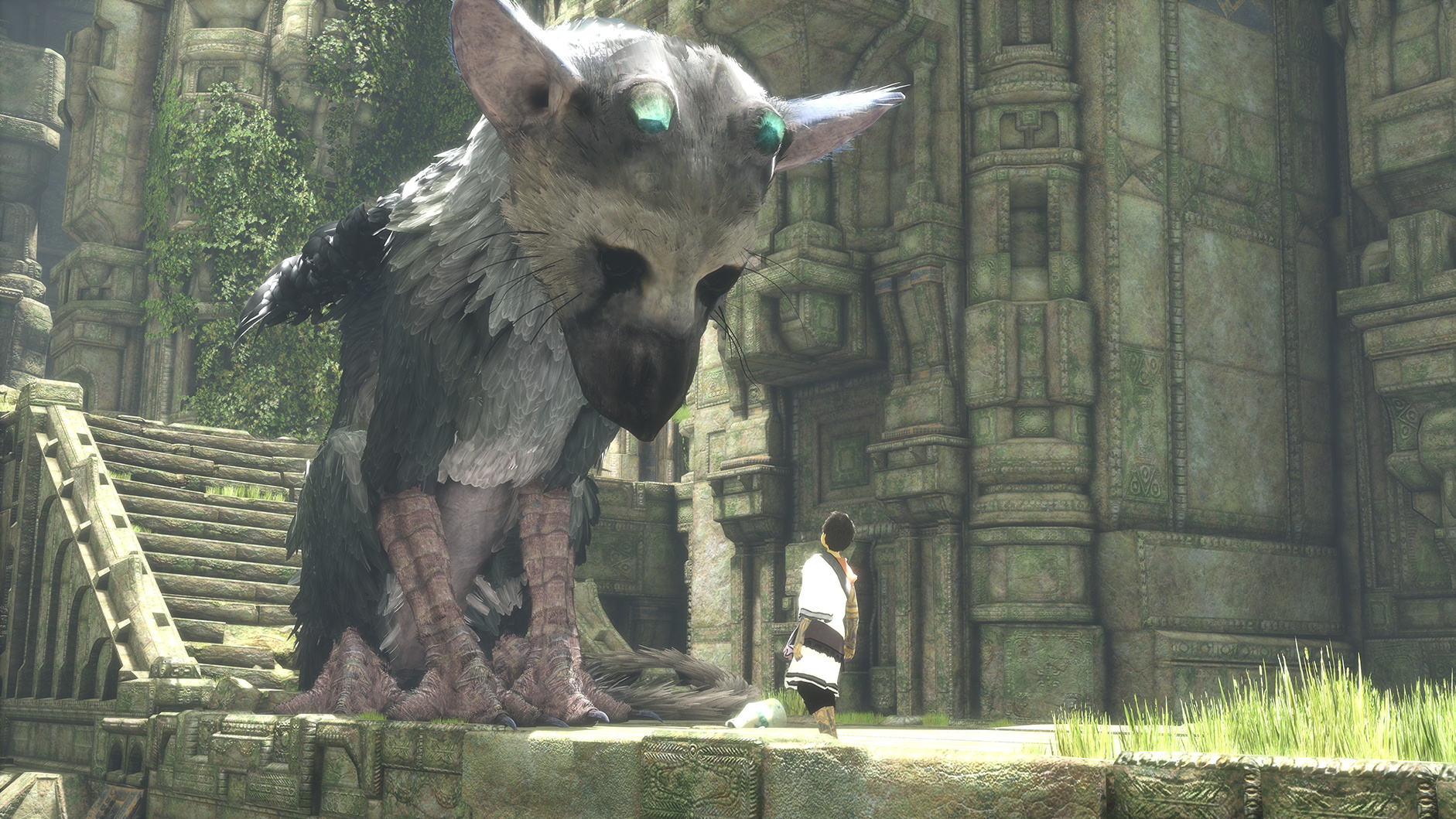
Aside from another remastering, this time of Final Fantasy 7, the biggest noise from E3 - possibly out of everything - was the announcement that the long-awaited The Last Guardian is slated for a PS4 release in 2016.
Sony is also helping Kickstart the Shenmue 3 crowdfunding effort and we're still hoping to see the space epic No Man's Sky this year too, so there are some definite wins in store for Sony's console.
Microsoft Xbox One
After an initial Xbox One unveiling that was disappointingly low on games content - Microsoft's E3 presentation was this year packed to the gunnels with gaming goodies, much of it exclusive to Xbox One.
Check out our guide to the best Xbox One games.
Somewhat inevitably one of the biggest crowd-pleasers came from seeing Master Chief back in action again with Halo 5: Guardians, but we also had Gears of War 4 and the timed-exclusive showing of Lara's latest, Rise of the Tomb Raider.

This pseudo-exclusive approach is something that is marking Microsoft apart from Sony on the gaming front, with the likes of the cross-platform Call of Duty: Ghosts getting timed exclusive DLC. In a similar way the upcoming Fallout 4 release is going to get PC mod support on the Xbox One version - a pretty major deal for anyone who's seen what the community made for both the PC versions of Fallout 3 and New Vegas.
The PS4 will get mod support, but not for a while after release.
Microsoft is also launching a Steam Early Access-a-like called Xbox Game Preview. This allows developers to get early versions of games out to the public to help in the development process...for a price. First to the fore are the space epic Elite: Dangerous and longtime zombeta DayZ.
Xbox One vs. PlayStation 4: Features
Sony PlayStation 4: 4K Support
Okay, so 4K TVs are not exactly in the majority of homes, but it's still becoming far more of a reality. Sadly the PlayStation 4 is going to need a hardware update to be able to properly output at the necessary 3840 x 2160 resolution that is 4K.
The console is going to need an update to HDMI 2.0 and the support for HEVC to enable it to decode Ultra HD content from streamers like Netflix. Likewise it'll need a new Blu-ray drive to support Ultra HD Blu-ray when that is launched later in the year.
As for gaming, well, that's never going to happen at 4K on the PlayStation 4…
Microsoft Xbox One: 4K Support
Because the two consoles are essentially using the same underlying hardware, and were released around the same time, both the Xbox One and PS4 suffer from the same 4K restrictions. There's some limited 4K upscaling capabilities, but Microsoft's console will also need a hardware update to hit the Ultra HD heights needed for 4K video streaming and Ultra HD Blu-ray.
And a serious hardware upgrade is going to be needed to get either running games at 4K.
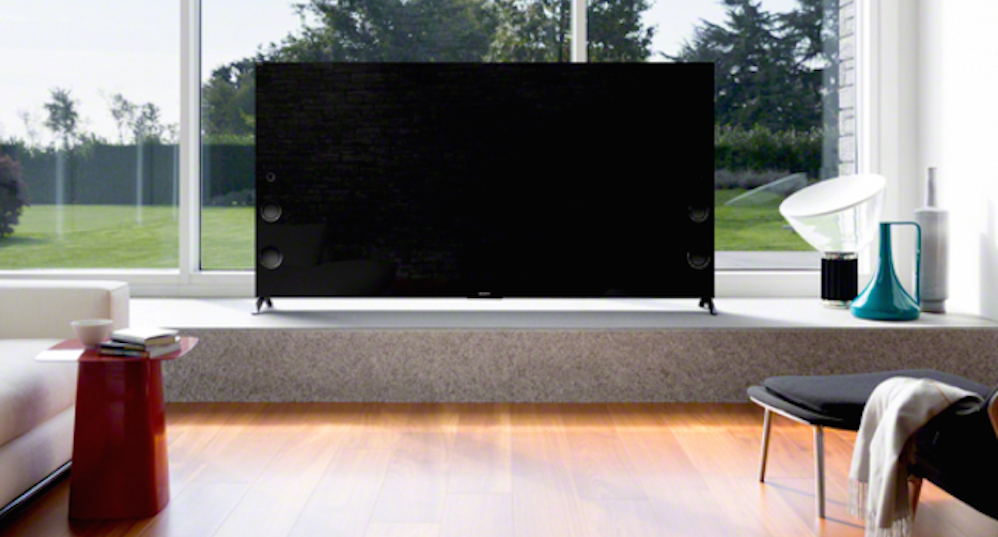
Sony PlayStation 4: Camera
The PlayStation Camera is a bit of a micro-Kinect, following in the best tradition of EyeToy. Like Move, it reads the light bars on the rear of the DualShock 4s so that you can manipulate items on screen with it, but also reads your flailing arms to interact, too.
The resolution is decent if nothing too scary – it doesn't track your expression or engagement, but it can tell if you've covered your eyes (the crowd of AI bots on the demo hushed, before we pulled our hands away and they all cried in a really quite charming game of Peek-a-boo). It will also set your head on fire – virtually, at least – in that AR style that Reality Fighters and its Vita brethren did.
Microsoft Xbox One: Camera & Kinect
First off, the new Kinect sensor can support up to six players at once, which is a vast improvement on the two- player limit its predecessor could handle.
Rather than reading the player as wiry stick figure with boxes for hands, feet and a head, the new Kinect module can pick up muscle texture, the shape of the player's head and register the difference between their thumbs and the tips of their fingers.
It can even pick up strain on the player's body parts, demonstrated to us when we stood one leg and saw our body part slowly turn red on the screen in front of us. Voice activated commands are still part of the package too.
Kinect can now monitor facial expressions, see if the player's face begins to flush and even read the player's heart rate. Not only will all of this be useful in the creation of Kinect software – fitness games, for example, will be far more advanced – but it also allows Kinect to gauge the player's level of engagement with any form of entertainment they happen to be watching through the Xbox One.
If all of this sounds a bit Orwellian, don't worry. Contrary to some of the rumours flying about the Internet, you don't have to have Kinect active at all times in order for the Xbox One to work – you can deactivate it entirely. Not only does this mean you can still play games in the nude, should you desire, but you don't have to allow it collect any data from your viewing or playing habits – although if you do, Kinect and the Xbox One will start to build a more bespoke entertainment experience just for you.
Xbox One vs. PlayStation 4: Build
Sony PlayStation 4
In terms of aesthetics the PlayStation 4 has Microsoft beat hands down on this one.
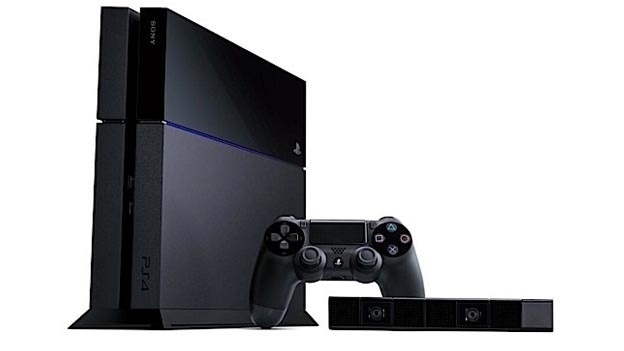
Somehow Sony has performed some technical voodoo and not only created a machine with a smaller footprint - while using almost identical AMD internal components - but has also managed to integrate the PSU inside the diminutive, angular chassis too. That means there's no trailer transformer heating up the mess of cables behind our TVs.
It can get a little warm if given a cramped corner of your television stand, but given enough space it remains impressively anonymous in the living room. It's certainly not going to distract you from the action on the screen.
Ports-wise, you've got HDMI 1.4, Optical audio, ethernet, auxiliary and a power cable. There's also a whole load of vents to help keep the PS4 cool. At the front you've got USB ports too.
There is a new, updated version of the console out this summer, which comes in 10% lighter and 8% less thirsty for power. Sadly it's not a 'slim' version, though the existing design is pretty svelte by most metrics.
Click here to check out our full Sony PS4 review, or take a look at our PS4 unboxing to see Sony's new wonderbox in the flesh.
Microsoft Xbox One
Xbox One weighs around 3.18kgs – roughly the same weight as the original 360 - but it is around 10% larger size-wise. Like the original Xbox, this one is unapologetically boxy and the heft of the Microsoft console will be divisive.
Well, we're sure someone must like the 1980's VCR aesthetics anyways…
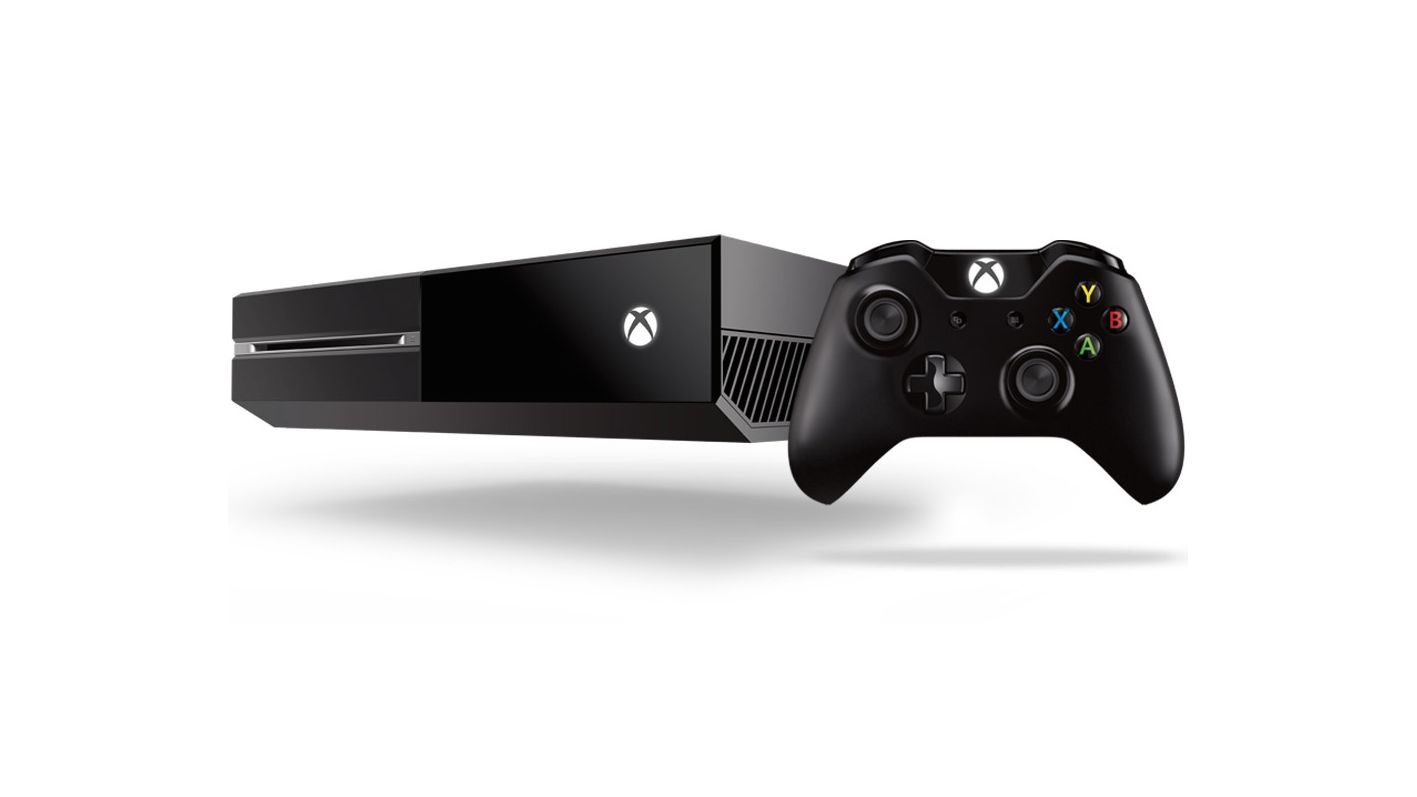
It's almost like the primary design concern was making sure there was no chance of a RRoD overheating debacle with the Xbox One. Keeping the power supply outside of the chassis and making sure there's a bunch of space around the active internal components ensures no such problems with Microsoft's latest.
At the obvious expense of the pretties.
Be warned too - the Xbox One will not stand up vertically. This machine is designed to nestle underneath your telly, rather than scooch up alongside it. So if you're planning a new living room set-up for Christmas, take heed.
On the back you've got HDMI 1.4 out and HDMI in, power cable, optical audio, two USB ports, an ethernet, an Infra-red out and your Kinect port too.
Click here to check out our full Xbox One review, or take a look at our Xbox One unboxing.
Xbox One vs. PlayStation 4: Specs
Sony PlayStation 4
Power-wise, the PS4 packs an eight-core CPU custom-made by AMD and aggressively named "Jaguar" and it's been paired with an AMD Radeon GPU and 8GB of GDDR5 memory. The more graphics-oriented memory type - usually seen on PC graphics cards - is designed for high speed at the expense of latency.
In games that's great, but means switching between programs is a little slower than the Xbox One's dedicated, low-latency DDR3 memory. But hey, the PS4 is a games console first and foremost.
Tests suggest that the PS4 is pumping out about 1.84 teraFLOPS of power (a FLOP being a standard measurement of computer power).
The standard on-board hard-drive is 500GB - big enough to house plenty of digital downloads, and the optical drive reads Blu-Rays and DVDs. There are new 1TB versions on the way this summer though, providing plenty of space for those increasingly corpulent game installs.
Microsoft Xbox One
Another eight-core AMD Jaguar chip powers the Xbox One, and provides eight times the power of the Xbox 360, whilst being ably supported by 8GB of system memory. Because of its focus on multi-tasking over the PS4's more gaming-centric approach, the Xbox One is using DDR3 for its system memory which has lower overall speed but also lower latency. That makes it great for multi-tasking and switching between running programs in the more laden OS.
The Xbox One hits a peak of about 1.23 teraFLOPS - which is evidently less than the PS4. But it's not just how many FLOPS you've got, it's how you use them - this number is just a small part of the power equation, the two aren't obviously that far apart in terms of power when it comes to cross-platform games. Though there have been resolution disparities with some early titles.
There's also a standard 500GB hard-drive, Blu-ray drive that supports 4K output, gigabit ethernet and GameDVR, which records your play constantly so you can share video highlights whenever you like. Again there is also a new 1TB version on sale now.
The Xbox One runs three different partitioned operating systems to avoid bogging down developers and their available resources. A Host OS runs the show, while two sub-OS's run apps, TV and system services separately from games, which get the bulk of the power. The console switches GPU and CPU requirements dynamically meaning no time-wasting reboots and quick-smart multi-tasking.
Xbox One vs. PlayStation 4: Controller
Sony PlayStation 4
The controller itself is sturdy and definitely weightier than the DualShock 3. It's not bulky though, and its sleekness is married to an almost textured coating on both the base and dual sticks that helps grip.
The dual sticks feel stiffer compared to the PS3's, and while this initially jars, we found with more exposure to them we actually preferred it for accuracy, though it takes some getting used to.
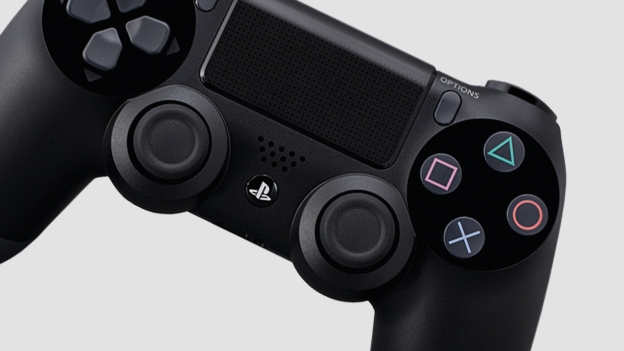
The triggers are now really very trigger-like indeed (although Killzone, rather bizarrely, still doesn't assign them as aim and fire) and their close placement to the shoulder buttons is a good design move that aids quick changes.
The main addition to the controller is the 'Share' button, which lets you record, edit and upload gaming footage and share it online with their friends.
'Second screen' is a term getting banded about gaming types a lot at the moment. The PS4's answer: The PS Vita doubles as an extra interface for the console, as will your iOS or Android-powered smartphone.
Microsoft Xbox One
Microsoft has taken the same approach as Sony to their new controller, choosing to tweak the Xbox 360 controller rather than overhauling it completely. However, where Sony has added extra weight to their DualShock, Microsoft's Xbox One controller is noticeably slimmer.
The grips are smoother and more spacious, with the old chunky battery pack now integrated into the controller itself (although the demo team was cagey about battery life). The thumbstick apparently now takes 25% less force to operate.
In use, the biggest difference is the front triggers. These now have vibration motors built in, giving haptic feedback even when you're not using them.
The noticeably flatter front of the controller is a bit OnLive-esque, and the 'Back' and 'Start' are replaced by 'Play/Pause' and the central 'burger' button is context-aware for single and double-taps.
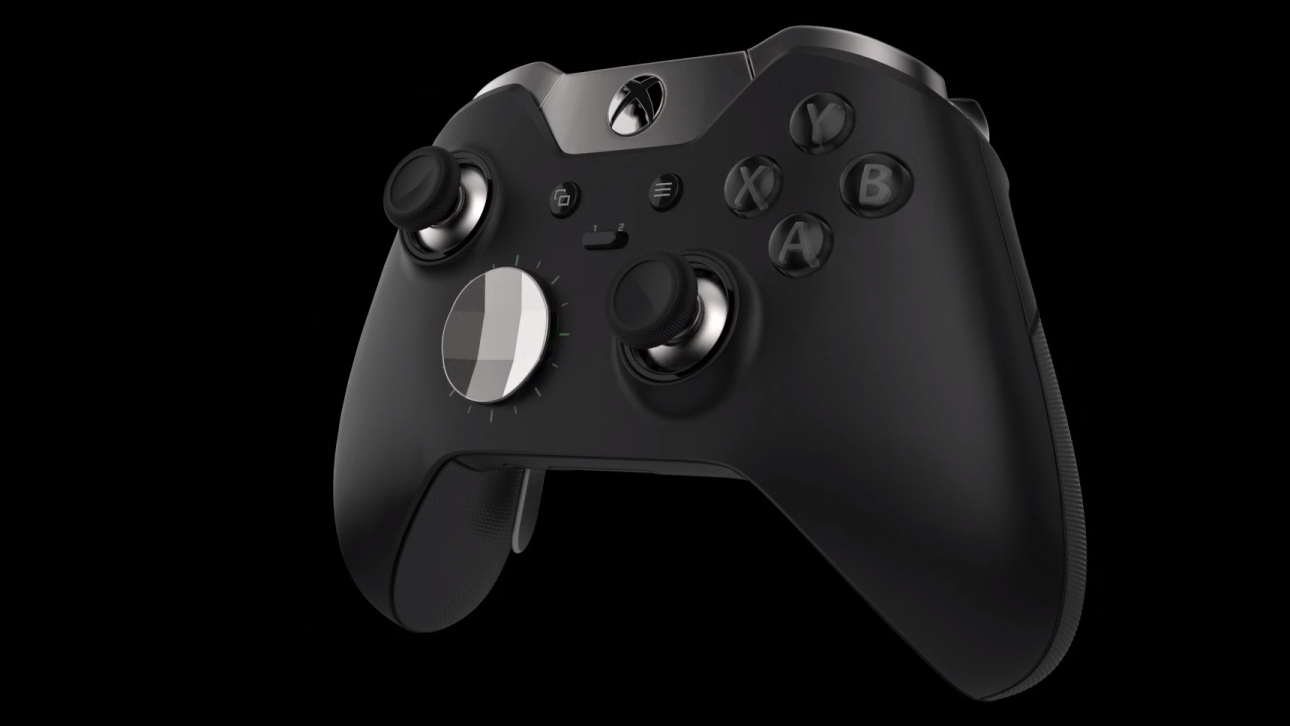
There is also a new Xbox Elite Wireless Controller coming in October, just in time for the end of year gamefest. It promises greater accuracy, more customisation, adjustable hair triggers and paddle switches for the supreme Forza experience. Well, one without a wheel anyways...
Xbox One vs. PlayStation 4: Interface
Sony PlayStation 4
The new PS4 interface features a similar blue and layout to the PS3 UI, with the usual smattering of friends lists and profile features, all denoted by horizontal tabs at the top of the screen. If anything, it actually has more in common with the layout you'll find on Sony's latest TVs.
Hitting the PlayStation button in the middle of your controller will automatically pause the game and let you fiddle with any options or settings you want, before jumping back in where you left off. A double tap toggles between active apps and games in a iOS7 sort of fashion/
The process of signing into user accounts and PlayStation Network has all been streamlined and simplified - another welcome change.
Microsoft Xbox One
Microsoft is most definitely trying to blur the lines between its different devices, using a familiar block pattern for the Xbox One's interface. If you've struggled with Windows 8's Start screen on PC, or swiped a Windows Phone's touchscreen you'll know what we mean.
But it feels slick and the hefty chunk of low-latency system memory means it's swift to navigate too, allowing you to jump in and out of games in a relatively seamless way.
Importantly, the increased capabilities of Kinect's four-element array mic eliminate ambient sound and recognise more words, making voice interaction not just possible, but genuinely useable and intuitive.
Integrated SmartGlass also means your iOS and Android devices become genuine second-screen resources rather than lightweight extras.
Amongst the Kinect port and USB 3.0s is not just a HDMI out, but a HDMI in. This is for your set-top box - part of Microsoft's aggressive "input one" strategy. Even if a telly service doesn't have bespoke Xbox content, you can still control it through your console and via Kinect.
WATCH: Xbox One Smartphone Concept video
Xbox One vs. PlayStation 4: Online & Cloud
Sony PlayStation 4
Sony wants the PS4 to give you social media through a gaming filter. You'll be able to jump into a friend's party and watch their game in progress as well as offering tips. You can even become the ultimate backseat gamer, and take control of the game if you deem them sucky enough.
Sony's acquisition of Gaikai ties into this nicely, offering an online service that lets you play games and demos via cloud streaming, as well as digital downloads.
This is all very convenient and lovely on paper, or indeed in the Far East where average internet connections are around 8-12Mbps. But how the UK's internet infrastructure – and indeed, Gaikai's servers – will cope with this sort of traffic is something we simply don't know yet.
Microsoft Xbox One
Fear not, you can still own and use an Xbox without an internet connection, but you will be excluded from most of the new functions and features of the new console, as well as most new games.
Now, you can buy a physical copy of a game, and then upload it to the cloud for your friends to access, and vice versa. So, say you want to try out the new Fifa and your mate has a copy – if he uploads his to the cloud, you can access it and play it. Once you sell a title, your version will be removed from your console and the cloud as soon as the new owner boots up that copy. Very clever stuff.
Developers now have the option of using large (and complimentary) external server spaces to outsource some of their game's grunt. While this will mean titles can be improved beyond the capabilities of the machine itself, it puts the requirement of speedy internet in the hands of the games makers on a case-by-case basis.
Xbox One vs. PlayStation 4: Backwards Compatibility
Sony PlayStation 4
If you've managed to hoard a mountain of PS3 games over the last few years, we've got bad news for you – you ain't going to be using any of them with the PS4.
However, lots of old PlayStation titles are available to download, or rent, digitally instead via Sony's PlayStation Now service. There's also the ongoing remastering of old games for the new console hardware if you want a little nostalgia fix.
But yes, that means you'll be paying for them again.
Rats.
Microsoft Xbox One
“We wont charge you to play the games you already own,” proudly exclaimed Microsoft's Phil Spencer at this year's Xbox E3 show.
Soon you'll be able to drop your old 360 discs into the Xbox One's drive bay for authentication and download a compatible version of that game for your new console to emulate in software. It's not going to be every game and when it launches later in the year it'll probably only have around 100 titles, but it's a start with more added every month.
This is a big move for Microsoft, and one it's hoping will stem the tide of 360 owners turning towards Sony. Though how many existing Xbox One owners still have their old 360 games to hand?
For more T3 videos, head to our YouTube channel and subscribe.


